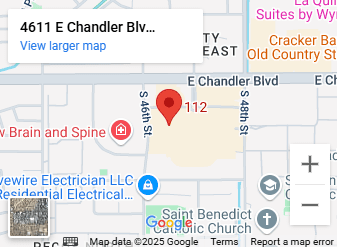Why You Need Seller Representation: Key Benefits and How a Business Broker Helps Sell Your Business
Selling a business without expert support often leads to undervalued deals, legal pitfalls, and prolonged market exposure. Engaging professional seller representation ensures your company receives an accurate valuation, discreet marketing, and skilled negotiation, directly boosting sale revenue and protecting your enterprise’s reputation. In this guide, we’ll define seller representation, explore its benefits, map the end-to-end sale process, examine Phoenix, Arizona legal and tax considerations, outline criteria for choosing a broker, explain risk mitigation and post-sale transition support, and present real-world case studies that demonstrate measurable value.
What Is Seller Representation and How Does a Business Broker Help?
Seller representation is a dedicated advisory service in which a business broker acts as the seller’s authorised intermediary. By combining market analysis, targeted buyer outreach, and structured negotiation, this service maximises sale value and minimises operational disruption during the transaction.
Representatives administer four core functions:
- Comprehensive valuation to benchmark your company’s fair market price.
- Confidential marketing that targets qualified prospects without alerting competitors or employees.
- Strategic negotiation to secure favourable terms and price.
- Robust transaction management covering due diligence, legal coordination, and closing logistics.
This integrated approach reduces stress and accelerates deal completion, laying the groundwork for a seamless sale journey.
The Value Proposition of Business Brokers in Sales
Research indicates that engaging a business broker provides significant advantages for sellers, including expert valuation, strategic marketing, skilled negotiation, and access to a broad network of qualified buyers. These services collectively aim to maximize sale value and streamline the transaction process.
This research directly supports the article’s claims regarding the core benefits and functions of a business broker in enhancing the sale process and value.
What Does a Business Broker Do for Sellers?
A business broker assesses financial records, identifies value drivers, and crafts a valuation report to justify the asking price and negotiate convincingly. By preparing a tailored information memorandum, the broker showcases your enterprise’s strengths to a curated pool of buyers, translating technical data into clear investment rationales. This methodology improves deal certainty and often yields a higher exit multiple.
Through active buyer qualification and structured bid submission, a broker filters out non-serious parties. This preserves confidentiality and focuses efforts on credible offers, ensuring that sellers invest time only where progress and mutual fit are tangible.
How Does Seller Representation Differ from Selling Privately?
Selling privately means the owner handles valuation, marketing, buyer screening, and negotiation alone, exposing the business to public disclosure and emotional decision-making.
In contrast, seller representation leverages specialist expertise, established buyer networks, and formal processes to mitigate these risks.
Below is a comparative overview of each approach:
| Approach | Key Feature | Seller Advantage | Primary Risk |
|---|---|---|---|
| Private Sale | Owner-led marketing via ads or word-of-mouth | Full control over messaging | Confidentiality breaches and limited reach |
| Broker Representation | Discreet multi-channel marketing | Access to pre-qualified buyers | Commission costs offset by higher sale price |
Both methods achieve a sale outcome, but representation consistently aligns seller objectives with structured market protocols that preserve confidentiality and optimise valuation.
Why Hire a Business Broker for Your Business Sale?
Engaging a broker provides three immediate benefits: expert valuation that underpins a persuasive asking price, strategic buyer engagement that expands transaction options, and professional negotiation that protects the seller’s interests. Brokers also coordinate due diligence, legal documentation, and financial compliance, transforming a complex sale into a managed, transparent process.
This ensures sellers avoid costly errors and exit with maximum value.
What Are the Main Benefits of Using a Business Broker for Sellers?
Seller representation delivers quantifiable advantages by integrating expert services under one advisory umbrella.
- Enhance sale proceeds through rigorous valuation and pricing strategy.
- Maintain strict confidentiality to safeguard reputation and operations.
- Manage the end-to-end process to save sellers time and reduce stress.
- Provide direct access to a network of qualified buyers for faster deal closure.
This holistic support elevates both value extraction and transaction security, establishing clear seller confidence.
How Does a Broker Maximise Your Business Sale Value?

Professional valuation combines revenue multiples, asset-based calculations, and future earnings projections to justify a premium asking price. Brokers adjust metrics for industry trends, regional market conditions, and intangible assets such as customer loyalty. By building a documented value case, they encourage buyers to submit higher bids and reduce the scope for discount negotiations.
How Does a Broker Ensure Confidentiality During the Sale?

Brokers employ controlled data rooms, masked marketing materials, and non-disclosure agreements to keep sensitive information shielded. Prospective buyers must demonstrate financial capacity and sign NDAs before viewing detailed financials. This process prevents leaks that could disrupt staff morale or trigger competitor poaching, preserving operational stability until closing.
Maintaining Confidentiality in Business Sales
Studies highlight the critical importance of confidentiality during a business sale to protect employee morale, customer confidence, and prevent competitive exploitation. Professional brokers employ strategies such as Non-Disclosure Agreements (NDAs), controlled information sharing, and anonymous marketing to safeguard sensitive business data.
This citation directly verifies the article’s emphasis on confidentiality and the methods brokers use to maintain it, as well as the risks of breaches.
How Does a Broker Save You Time and Reduce Stress?
With a broker handling buyer communication, document preparation, and liaison with lawyers, sellers remain focused on running the business. Standardised workflows and project management platforms track milestones—valuation, marketing launch, offer assessment, due diligence, and completion—providing sellers with concise status updates and next-step guidance.
What Access to Qualified Buyers Does a Broker Provide?
Established brokers maintain ongoing relationships with private investors, corporate acquirers, and strategic buyers. By tapping into proprietary databases and professional networks, they introduce the business to parties actively seeking acquisitions. This significantly shortens sale timelines and increases competitive tension, driving up the ultimate transaction value.
How Does the Business Sale Process Work with Seller Representation?
The sale process under broker representation comprises defined stages—from initial valuation to deal completion—each designed to optimise efficiency and outcomes.
How Is Your Business Valued by a Broker?
Brokers deploy multiple valuation methodologies—EBITDA multiples, discounted cash flow (DCF), and asset-based approaches—to triangulate a balanced price. They analyse financial statements, adjust for non-recurring expenses, and factor in market comparables. This multi-aspect evaluation forms the basis for setting realistic yet aspirational target prices that resonate with buyers and withstand negotiation scrutiny.
What Preparation Does a Broker Guide You Through Before Selling?
Preparation covers financial housekeeping, operational audit, and marketing collateral assembly. Brokers recommend improving key metrics—revenue consistency, margin expansion, and customer diversification—while ensuring all legal and tax documentation, such as articles of association and shareholder agreements, are up to date. This front-loaded worklist readies the business for seamless due diligence.
How Does a Broker Market Your Business Confidentially?
After establishing a non-disclosure framework, brokers craft anonymised business teasers that highlight sector performance, asset strengths, and growth potential without revealing identities. They deploy multi-channel campaigns—targeted email outreach, industry platforms, and discreet professional networks—to solicit interest exclusively from screened buyers. This discreet strategy maximises exposure while protecting your market position.
How Does a Broker Negotiate the Best Deal for You?
Skilled brokers leverage competitive bidding and structured offer presentations to encourage higher and cleaner bids. They apply negotiation tactics such as anchoring to favourable terms, packaging deal sweeteners, and safeguarding against conditional clauses that could jeopardise completion. This disciplined approach secures robust purchase agreements that align with the seller’s financial and timing objectives.
What Happens During Due Diligence and Legal Completion?
During due diligence, brokers coordinate requests for financial records, contracts, intellectual property documentation, and compliance certificates. By liaising with lawyers, accountants, and tax advisors, they ensure queries are addressed promptly. At closing, brokers oversee signing, fund transfers, and ownership handover, streamlining the final legal and administrative steps and minimising post-completion complications.
What Are the Legal and Tax Considerations When Using Seller Representation?
Engaging seller representation necessitates awareness of Phoenix, Arizona-specific tax rules and legal protections. Professional brokers collaborate with legal and accounting specialists to manage these critical aspects.
How Does Seller Representation Help with Legal Protection and Agreements?
Representation services include drafting and reviewing sale agreements, shareholder warranties, indemnity clauses, and transitional service arrangements. Brokers collaborate with lawyers to embed protective provisions that limit post-completion liabilities, ensuring that contractual safeguards align with the seller’s risk preferences and commercial objectives.
How Are Confidentiality Agreements Managed During the Sale?
Brokers implement staged confidentiality protocols: initial nondisclosure agreements for teaser documents, followed by comprehensive data room access upon financial and professional validation. This tiered approach balances the need for detailed buyer assessment with the imperative to shield sensitive business information until serious offers materialise.
How Do You Choose the Right Business Broker for Seller Representation?
Selecting a broker is as crucial as the sale itself. The right advisor combines market expertise, proven track records, and transparent fee structures.
What Questions Should You Ask a Potential Business Broker?
- Valuation Methodology – How they arrive at asking price estimates.
- Buyer Network – Size and relevance of their active buyer database.
- Process Management – Tools and communication protocols for progress updates.
- References – Client testimonials and case outcomes.
These questions uncover a broker’s capabilities and fit for your sale objectives.
How Are Broker Fees and Commission Structures Typically Arranged?
Most brokers charge a combination of a fixed retainer plus a success-based commission, often ranging from 10% to 15% of the final sale price. Fee structures may include milestone payments tied to valuation sign-off, marketing launch, and completion. Transparent breakdowns ensure sellers understand cost-to-benefit ratios from the outset.
What Makes a Business Broker Reputable and Experienced in Phoenix, Arizona Market?
Reputable brokers hold professional memberships, such as the Institute of Transaction Advisers and Business Brokers, and maintain strong relationships with legal and financial institutions. They showcase sector-specific case studies, publish thought leadership on Phoenix Arizona transaction trends, and adhere to ethical standards that reinforce trust and compliance in every sale.
How Does Seller Representation Mitigate Risks and Support Post-Sale Transition?
Seller representation doesn’t end at signing contracts; it extends into risk avoidance and after-sale support to ensure smooth ownership transfer.
What Risks Does a Business Broker Help You Avoid When Selling?
Brokers proactively identify and address:
- Valuation gaps that lead to lowball offers.
- Confidentiality breaches that harm employee morale.
- Contractual loopholes exposing sellers to post-completion claims.
- Tax pitfalls from suboptimal sale structures.
By pre-empting these issues, brokers safeguard transaction integrity and seller returns.
How Does a Broker Support You During Post-Sale Transition?
Post-sale, brokers coordinate handover schedules, introduce the new owner to key stakeholders, and facilitate transitional services—such as staff training, vendor negotiations, and financial system handovers. This continuing involvement ensures operational continuity and protects the goodwill you’ve built.




